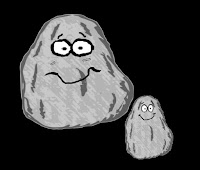Parshas Ki Seitzei - Parsha Stumpers

~ Something to Think About ~ פרשת כי תצא Parsha Stumpers By: Daniel Listhaus (21:11) How could we understand the concept of eishes y'fas to’ar ? (21:18) How could we understand the concept of ben sorer u'moreh ? How could we punish him based on his future? Doesn't he have bechira? (22:7) The mishna in Berachos states that if one who declares, “Hashem's rachamim extends to the bird's nest” we quiet him. a. Where do we see in this week's parsha that Hashem's rachamim reaches the bird's nest? b. What is wrong with saying such a statement that we quiet one who says it? (22:12) This week's parsha contains the basis for the minhag to start wearing a talis when one gets married. Where is it? (23:8) In this week's parsha is an unbelievable example of the extent we must show hakaras hatov . What is it? Why? (23:14) In this week's Parsha there is a mitzva , which many people do not know, pertaining to ...



